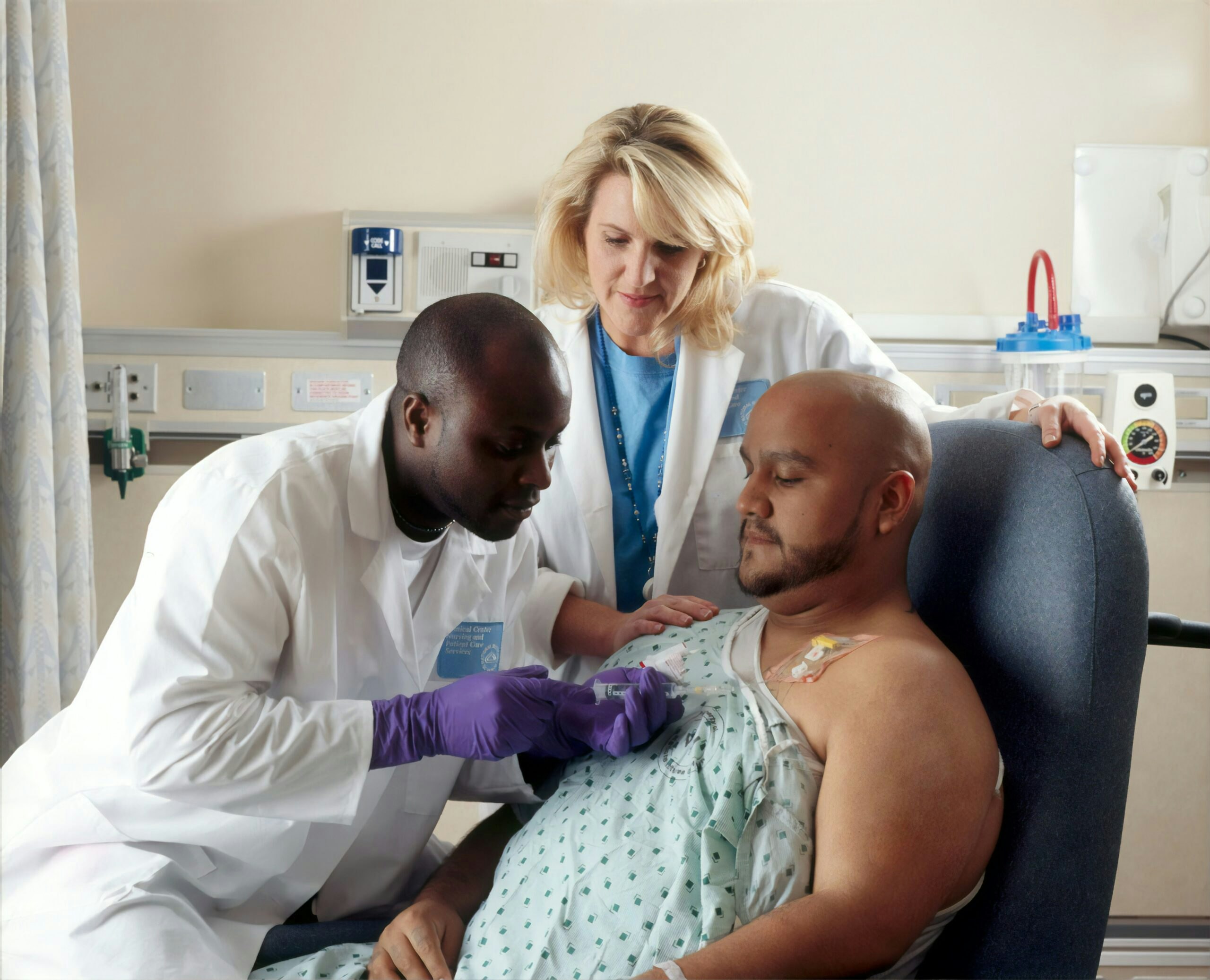What You Need to Know About Chemo Port
Oct 26, 2022
Share

Chemotherapy is often administered through a catheter inserted into your vein. The common type of catheter used for long term and frequent chemotherapy treatment is an implanted port, or chemo port. It is a catheter connected to a small plastic or metal disc that goes under the skin. Chemo port placement is done by a surgeon or a radiologist, with local anesthesia or conscious sedation. They are usually put in the right side of your chest, but can also be placed on the left side, under your arm, or abdomen.
Benefits of having an implanted port
Having a port for chemo is a common choice for cancer patients because:
- it can remain in place and be used for years
- it is hidden. You will only feel a bump under your skin
- it can be used for medications and blood tests. There is no need for multiple needle sticks
How is a chemo port used for treatments
A trained healthcare professional, typically a nurse, will access your chemo port. Here are key points to remember during port access:
- Ask the nurse to numb the area beforehand. This is not necessary but helpful for your comfort. A numbing cream can be easily applied over your skin and left for 30 minutes.
- Make sure that you, the nurse, and everyone else in the same room are wearing masks during the procedure.
- Your nurse is going to wear sterile gloves during the procedure. If necessary, help him or her keep the sterility of the gloves by keeping your hair, clothes, jewelry, and blankets away.
- The port access needle stays in place while in use. So please be very mindful of your access site.
- Know the kind of port you have. Power-injectable ports can be used for contrast injections, such as those used for CT scans or MRI.
Once your chemo port is accessed, it is covered with a clear sterile dressing and can be used for medications and blood draws. Keep in mind, some hospitals have policies that will not allow port access for other medical treatments if you are actively receiving chemo. This is to reduce the risk of losing your only access– your life line.
Caring for your chemo port
Your chemo port needs to be flushed to prevent infection and to keep it from being clogged. While your port is accessed, it will need to be flushed with saline at least once a day. Prior to removal, your nurse will flush your port with saline and a small dose of heparin to prevent clots from forming. When your port is not routinely being used, you need to have it accessed and flushed every 4 to 6 weeks.
You can also take charge of the cleanliness of your chest port while it is in use:
- Keep the clear dressing clean and dry. Alert your nurse if it looks dirty or is peeling so it can be changed.
- Make sure the hub at the ends of the external catheter are wiped before each use.
- If your port access is being used for several days, ask your nurse for disinfecting protector caps. Most facilities have these as part of their routine intravenous (IV) catheter care intervention.
- Always wash your hands before touching the external catheter
When to call your healthcare provider
Contact your health care team right away if:
- the area around your port appears red, swollen, or bruised, and is painful and warm to the touch
- your arm that is on the same side of your body as the port is swollen
- you see a lot of bleeding around the port or the access catheter
- you see fluids leaking out of the access catheter
The bottom line is, chemo ports are helpful in preventing multiple needle sticks for frequent chemotherapy treatments and blood draws. But before you make a decision about them, you need to understand the pros and cons of having one and how to manage it. For more information about chemo ports, visit the OncoPower education library and watch four short illustrative videos presented by our patient navigator.
Talk to your oncologist today if having a port for cancer treatments is right for you. Our team of medical professionals at OncoPower are standing by to answer all your questions.
Trusted by cancer patients around the world.
Joan-Smith
Virginia, United States
ChuckHastings
Florida, United States
DebraPearl
Pennsylvania, United States
Jennweeks
Iowa , United States
PatrickDW
Western Cape, South Africa
Jamie-Alexander
Floroda United States
CJ
Liz
Florida, United States
NYCynthia
New York, United States
Ferdi
California, United States